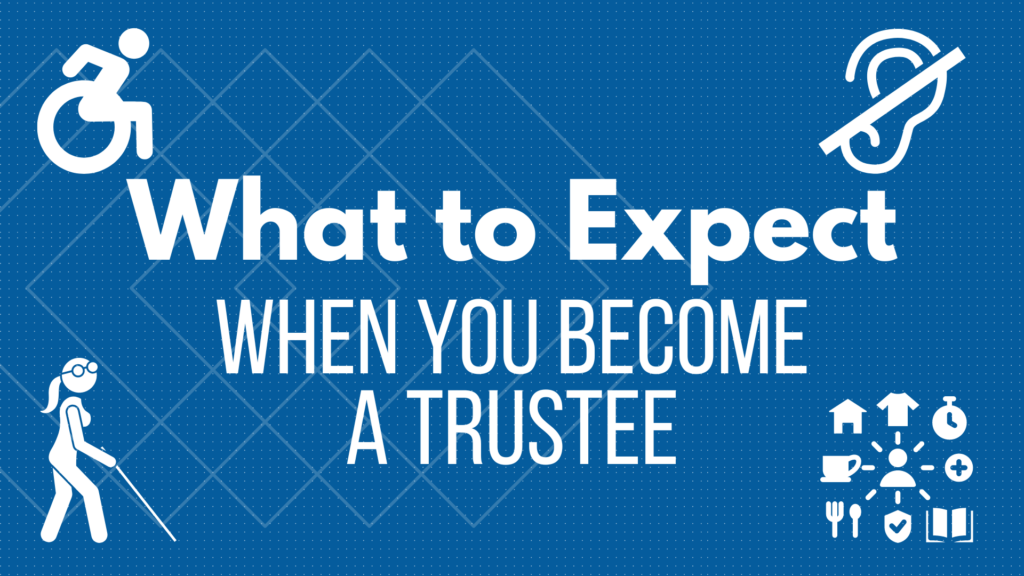What to Expect when you Become a Trustee

Being named trustee for a family member is a big responsibility. You’ll be handling tasks like managing money, making decisions for the benefit of your loved one, and keeping track of how the trust funds are used. If you’re new to this role, there’s a lot to learn about your duties, the rules around trusts, and how to navigate this new dynamic with your loved one. Let’s walk through what to expect and share some tips to help you get started.
Understanding Your Duties
As a trustee, you have a legal duty to manage the trust’s assets for the benefit of your loved one. This means making smart financial decisions, not for your gain but for theirs. You’ll be handling money and other assets, and there are rules and guidelines you need to follow. These fiduciary duties are essential to ensure that you’re acting in the best interest of the trust beneficiary.
Building Your Support Team
You don’t have to do this alone. There are plenty of experts out there who can help you navigate your new role. Elder law attorneys, accountants, financial advisors, special needs planners, case managers, social workers, and property managers can all offer valuable assistance. However, make sure they have experience working with trusts before you decide to work with them.
Special Needs Trusts (SNTs), for example, have specific rules about how funds can be used to maintain eligibility for public benefits. Understanding these rules will help you make informed decisions about distributions and ensure you’re meeting your loved one’s needs without jeopardizing their benefits.
Getting to Know the Trust Document
The trust document itself will have specific guidelines you need to follow. It might detail how funds should be used, how property should be managed, and who needs to be consulted when making decisions. Working with an elder law or special needs attorney can help you understand these responsibilities fully.
Building a Trusting Relationship
Transitioning to a trustee role can be tricky, even if you have a good relationship with your loved one. You’ll need to explain your new responsibilities and listen to their needs and goals. Communicate openly about decisions and always explain the reasons behind your choices. This can help maintain a positive and trusting relationship.
Preparing for Early Decisions
Early in your role, you’ll face some significant decisions, like where your loved one should live or who should provide their care. These “day two choices” can be challenging, but having a clear understanding of the trust document and seeking advice from professionals can guide you through these decisions.
Keeping Good Records
Recordkeeping is a crucial part of being a trustee. You’ll need to keep accurate records for tax filings, court reports, and to maximize public benefits. Some trustees use spreadsheets or accounting software, while others use specialized trust administration tools that help manage budgets, pay bills, and keep everything organized.
Final Thoughts
Becoming a trustee, especially for a Special Needs Trust, is a significant responsibility, but with the right knowledge and support, you can manage it effectively. Don’t hesitate to seek help from professionals and use resources available to you to ensure you’re fulfilling your duties in the best possible way.
